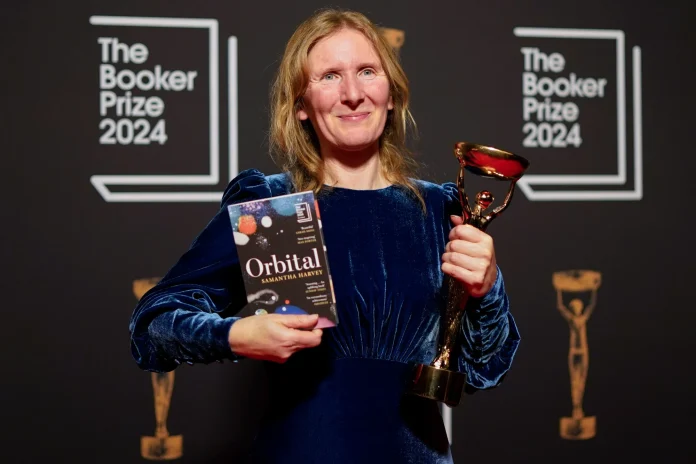UK writer Samantha Harvey won the Booker Prize for fiction for Orbital, a short novel set aboard the International Space Station and reflecting on the beauty and fragility of Earth, according to AP News.
Harvey was awarded the 50,000-pound ($64,000) prize for what she called “space pastoral” about six orbiting astronauts. The locked-in characters experience 16 sunrises and 16 sunsets throughout the day, mesmerised by the ever-changing views of the globe.
To look at the Earth from space is like a child looking into a mirror and realising for the first time that the person in the mirror is herself. What we do to the Earth we do to ourselves.
Harvey prepared her novel by reading books by astronauts and watching the space station’s live cameras. She dedicated the prize to all those who stood “for and not against the Earth, for and not against the dignity of other humans, other life.”
All the people who speak for and call for and work for peace — this is for you.
The author of four previous novels and a memoir about insomnia, she is the first British writer to win the Booker since 2020. The prize is open to English-language writers of any nationality and has a reputation for being a career-changing award for writers. Previous winners include Ian McEwan, Margaret Atwood, Salman Rushdie and Hilary Mantel.
Other finalists include the spy story Creation Lake by American writer Rachel Kushner, the poetic novel Held by Canadian Anne Michaels, the Australian saga Stone Yard Devotional by Charlotte Wood and The Safekeep by Yael van der Wouden, the first Dutch writer to be shortlisted for the Booker.
The Booker Prize was founded in 1969. It is awarded to novels originally written in English and published in the UK or Ireland. Last year’s winner was Irish writer Paul Lynch for his post-democratic dystopia Prophet Song.
